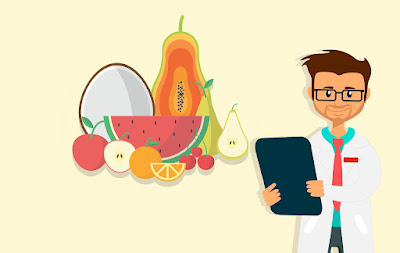Introduction Nutritionists:
 |
| nutritionists |
Secrets nutritionists won’t tell you! Learn how to eat right and lose weight without even having to think about it. The diet and nutrition world can be confusing and complicated, but it doesn’t have to be that way! This article will give you the tips, tricks, and secrets you need to know to help you shed pounds, build muscle, and live healthier than ever before. Even if you are an experienced bodybuilder or weight loss enthusiast, there may be a few things here that surprise you! Stay tuned to learn more.
The importance of breakfast:
Skipping breakfast might seem like a no-brainer way to lose weight, but what happens is you end up overcompensating later in your day. One study found that people who skipped breakfast actually consumed more calories and ate more food during lunch than those who didn’t skip it. That’s because skipping your morning meal sends your body into starvation mode, which means it’s less efficient at metabolizing calories later in your day and storing them as fat. When you do eat breakfast rich in protein, fiber, and healthy fats you can keep cravings under control until lunch and maintain better portion control. The biggest mistake people make.
Healthy Food:
 |
| nutritionists |
If you’re looking to lose weight and don’t have time to cook nutritionists, it may be better to order takeout than hit up a convenience store. A recent study published in Cell Metabolism found that lab rats fed a diet of 5 percent junk food developed glucose intolerance or insulin resistance. The researchers discovered that not only did rat pups born to these diabetic mothers have trouble maintaining their own blood sugar levels, but they also had an increased appetite for junk food even when they didn’t become obese themselves. In other words, mothers eating junk food passed on those traits to their children.
Can you eat too much protein?
Protein nutritionists are great for your body but can be dangerous if you're not careful. If you eat more protein than your body needs, it will begin converting it into fat and storing it for later use. On top of that, eating too much protein can lead to nausea and even diarrhea. Watch out for excess proteins in your diet! Always make sure you have a proper balance between nutrients so that one doesn't overtake another. A good rule of thumb: include around 10% of each macronutrient (that's carbohydrates, fats, and proteins) on your plate at any given meal or snack. That way, you'll get all of their benefits without overdoing it.
What vegetables are most nutritious?
The simplest answer is no, says Lauren Minchin, registered dietitian nutritionists in Philadelphia. Fruit can be eaten raw or cooked, but it's important to keep in mind that regardless of whether you eat it raw or cooked, whole fruit is going to be much better for you than juice. If you want to squeeze more nutrients out of your fruit nutritionists, go for fresh-squeezed over bottled. The antioxidants (those are what make fruits good for us) live in and around fruit cells so squeezing whole fruit gets them into your glass right along with their vitamins and minerals. That doesn't mean you shouldn't buy juice, just don't think it's healthier than eating whole fruit. That said, some juices are fortified with calcium and vitamin D so if that's what you're after then by all means go ahead.
Fad Diets vs. Healthy Eating Habits:
Research shows that, long term, people who follow healthy diet nutritionists will be healthier than those who do not. Diets can be alluring because they promise quick and easy results, but in most cases these are unsustainable habits that can lead to unhealthy eating patterns. Dieting is really about making small changes to your everyday routine: cooking with fewer processed ingredients, reducing sugar and salt intake, and adding more whole foods to your diet. If you're looking for guidance on how to make healthy eating habits work for you, look no further than our nutritionist guide. In fact, many of her tips can help you lose weight without feeling like you’re starving yourself!
Reading nutrition labels:
 |
| nutritionists |
Dietitians will tell you that nutritionists labels are a joke and they’re right, but they can still be helpful when used correctly. For example, look for added sugars (sugar added to a food by manufacturers or cookers) instead of total sugars on a nutrition label. One of my favorite ways to identify added sugar is to check how far down on a nutrition label it appears; if it’s listed near all other ingredients, there’s a good chance it was added. If a product has more than one type of sweetener in it, like cane sugar and corn syrup, chances are one or both were added.
Fruit better than cooked fruit:
Raw fruit can be more filling than cooked fruit nutritionists, meaning that if you fill up on it before eating other snacks or meals; you’ll naturally eat less at those times. The difference is that while a raw fruit cup has around 100 calories per cup (and contains fiber to keep you feeling full), a cooked cup of sliced apples or berries is often closer to 200 calories and contains no fiber. The takeaway: It doesn’t really matter how much you enjoy your favorite fruits; rather, it matters how much of them you have during a meal or snack. So whether you prefer cooked or raw, make sure to measure out portions of both for even weight loss results. Either way, fresh is always best!



1 Comments
Good
ReplyDelete